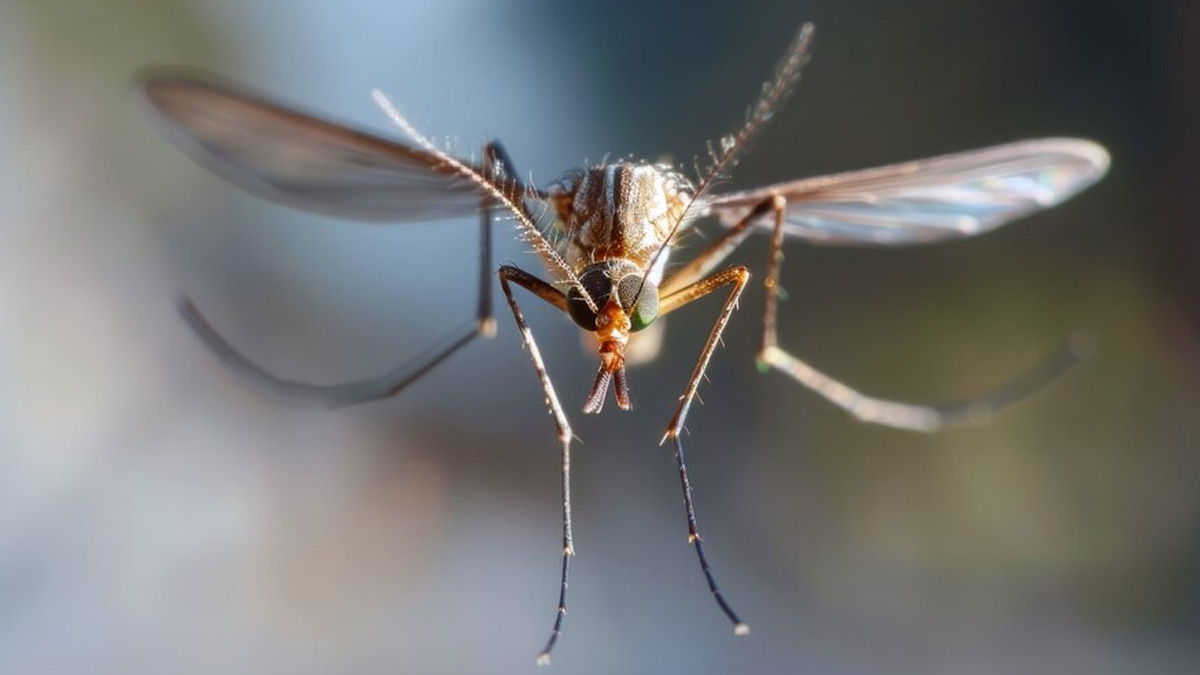
Heavy rains and flooding in June have led to a surge in the mosquito population, and West Nile virus is primarily spread through the bite of an infected mosquito. This week, the South Dakota Department of Health confirmed the state’s first human case of West Nile virus for 2024 in a Beadle County resident.
While August typically sees the highest number of West Nile cases in the region, health officials are urging residents to be vigilant. Symptoms of West Nile virus can range from mild flu-like illness to severe conditions. While most people infected with West Nile virus don’t develop any symptoms, others may experience mild to severe illness.
According to the United States Department of Health and Human Services, ‘West Nile virus is the most common mosquito-borne disease in the continental US, with approximately 2,205 cases reported each year. Approximately 80% of people infected with West Nile virus will not have any symptoms. That is why it is important to know about this disease.

What Is The West Nile Virus?
Before we dive into the symptoms, it's essential to know that West Nile virus is a virus transmitted by mosquitoes. The virus can infect humans, birds, and horses. While it’s not contagious from person to person, understanding its transmission is vital for prevention.
Mild Symptoms of West Nile Virus
According to the Centres for Disease Control and Prevention, most people who contract West Nile virus experience mild symptoms or no symptoms at all. If you do develop symptoms, they typically appear within 3 to 14 days after the mosquito bite. Common mild symptoms include:
- Fever
- Headache
- Body aches
- Nausea
- Vomiting
- Diarrhoea
- Rash (occasionally)
- Swollen lymph nodes
- Sore throat
- Pain behind the eyes
These symptoms are similar to those of the flu and usually resolve on their own within a week or two.
Also Read: Cases Of West Nile Fever Reported In Kerala: Here’s How You Can Protect Yourself

Severe Symptoms of West Nile Virus
A smaller percentage of people infected with WNV develop severe illness, often called neuroinvasive disease. This condition involves the brain and spinal cord. Symptoms of severe WNV include:
- High fever
- Severe headache
- Stiff neck
- Confusion
- Muscle weakness
- Vision loss
- Numbness
- Paralysis
- Tremours
- Seizures
- Coma
If you experience any of these severe symptoms, seek medical attention immediately.
When to See a Doctor For West Nile Virus?
While most people recover from mild West Nile virus symptoms without medical intervention, it's essential to consult a healthcare provider if:
- Your symptoms worsen or persist
- You experience severe symptoms like those mentioned above
- You have a weakened immune system
- You are pregnant or breastfeeding
Early diagnosis and treatment can help manage symptoms and prevent complications.
Also Read: 21 Israelis Diagnosed With West Nile Virus, Two Dead; Everything To Know About It
Preventing West Nile virus
The best way to protect yourself from WNV is to prevent mosquito bites. Here are some tips:
- Use insect repellent containing DEET, picaridin, IR3535, or oil of lemon eucalyptus.
- Wear long-sleeved shirts and long pants when outdoors.
- Limit outdoor activities during peak mosquito hours (dusk to dawn).
- Eliminate standing water around your home, as it's a breeding ground for mosquitoes.
- Install or repair screens on windows and doors.
By taking these precautions and being aware of the symptoms of West Nile virus, you can identify if your mosquito bite can cause West Nile fever and significantly reduce your risk of infection.
Read Next
1.6 Million Indian Children Missed Crucial DPT And Measles Vaccine In 2023: WHO-UNICEF Report
How we keep this article up to date:
We work with experts and keep a close eye on the latest in health and wellness. Whenever there is a new research or helpful information, we update our articles with accurate and useful advice.
Current Version